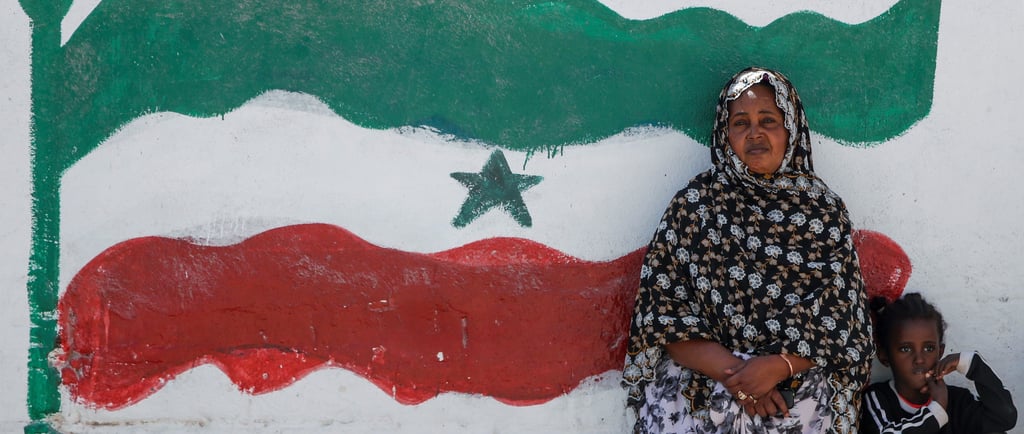A US Base in Somaliland? The High-Stakes Gamble That Could Remap the Horn of Africa
Dr. Ghada Kamal, African Affairs Expert
8/31/20253 min read


The geopolitical chessboard in the Horn of Africa is heating up, and a new, unexpected player is making a bold move. The self-declared republic of Somaliland has formally proposed hosting a US military base on its strategic coastline. While still in its early stages, this offer is a high-stakes gambit that could send shockwaves across the region, escalating the great-power rivalry between the United States and China.
This is more than just a proposal for a new military outpost; it’s a move where local ambition meets global strategy in one of the world’s most volatile regions. The central questions are: Why now? And what happens next?
The Ultimate Prize: Why Somaliland is Making the Offer
For the unrecognized republic of Somaliland, the offer is a calculated play for the ultimate prize: formal political recognition. For over three decades, Somaliland has functioned as a de facto independent state with its own government, currency, and security forces, achieving a level of stability that has eluded the rest of Somalia. Yet, it remains in diplomatic limbo.
By offering the US a strategic foothold, Hargeisa is aiming to transform its status from a regional anomaly into an indispensable security partner. The logic is clear: if Somaliland becomes crucial to American strategic interests, Washington might be the first major power to officially recognize its sovereignty.
Somaliland’s key asset is the Port of Berbera. Overlooking the Gulf of Aden near the critical Bab al-Mandab Strait—a chokepoint for nearly a third of global shipping—the port is a geopolitical jewel. Recent investments by DP World have turned it into a major logistics hub, making it an attractive platform for projecting military and economic power.
Washington's Calculus: Countering China and Securing the Seas
For the United States, the proposal lands at a moment of strategic urgency. Washington has watched with growing concern as China has expanded its influence across the Horn of Africa, culminating in the establishment of its first-ever overseas military base in Djibouti, just a stone's throw from the US's own Camp Lemonnier.
A base in Somaliland offers Washington a powerful countermove in this new "Great Game."
Countering Chinese Expansion: A US presence in Berbera would create a direct strategic counterbalance to China's base in Djibouti. It would allow the US to reposition its forces, enhance its surveillance capabilities in the Red Sea, and prevent Beijing from achieving uncontested dominance over this vital maritime corridor.
Securing Vital Interests: The base would bolster US efforts to combat regional threats, from terrorism and piracy to the ongoing attacks by Houthi militants in Yemen. It would give Washington another launchpad to protect global shipping and respond rapidly to crises in both East Africa and the Middle East.
The Ripple Effect: Potential for Regional Chaos
But this high-stakes partnership comes with explosive risks that could destabilize the entire region.
Fueling the US-China Rivalry: A US base would undoubtedly escalate the competition, potentially triggering an arms race in the Red Sea. In response, China could deepen its military ties with Mogadishu or expand its own naval presence, turning the Horn of Africa into a direct flashpoint between the two superpowers.
Shifting Regional Balances: Neighboring powers would be forced to react. Djibouti could lose its strategic leverage over Ethiopia, which relies on its ports for 95% of its trade. Egypt may view an enhanced US-Israeli sphere of influence in the Red Sea as a direct threat to its national security.
Threatening Somalia's Unity: A US base and potential recognition of Somaliland would deal a devastating blow to the fragile federal government in Mogadishu. It could fuel separatist movements in other regions, deepen societal divisions, and even provoke a military confrontation over disputed territories, potentially leading to the disintegration of the Somali state.
Three Paths Forward: What Happens Next?
The proposal now sits with Washington, which faces three distinct choices, each with profound consequences.
Scenario 1: The Full Embrace
The US accepts the offer, establishes a base in Berbera, and moves toward formalizing diplomatic and economic ties with Somaliland. This would achieve Washington's immediate strategic goals but would almost certainly trigger a fierce backlash from Mogadishu and escalate tensions with China and other regional players.
Scenario 2: The Cautious Partnership
Washington could opt for a more discreet approach, engaging in limited intelligence and logistical cooperation with Somaliland while officially maintaining its "One Somalia" policy. This would allow the US to gain a strategic advantage without causing an immediate diplomatic explosion, but it would fall short of Hargeisa's ultimate goal of recognition.
Scenario 3: The Cold Shoulder
The US may reject the offer outright to avoid destabilizing the region and provoking its partners. However, this could push a spurned Somaliland to pivot toward other powers like Russia or even China, creating an entirely new set of strategic challenges for Washington.
Conclusion: A Region on the Brink
The proposal for a US base in Somaliland has thrown a geopolitical wild card into an already volatile region. It is a bold move by an unrecognized state to force its way onto the world stage, and a tempting opportunity for a superpower looking to check its rival. The path chosen will not only determine the future of Somaliland and Somalia but will also help define the new balance of power in the Horn of Africa for years to come.
Download full study here.
Empowerment
Amplifying African voices for sustainable progress together.
Contact US
Growth
Street No. 3281, N'Djamena, Republic of Chad.
© 2024. All rights reserved.